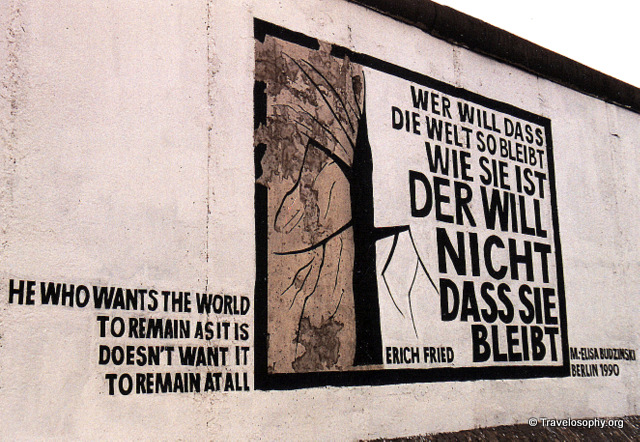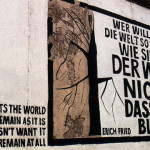
When we explore folklore and mythology we realize that history is replete with symbols and images of cataclysm, disaster, wholesale destruction and apocalypse.
Let’s consider the ancient and well known tale of Henny Penny also known as Chicken Little, found in many countries around the world. The phrase “The sky is falling!” originates from this fable. This idiom points to the mistaken belief that disaster is imminent. In Ireland the fable is aptly titled: The end of the world.
The basic story line is about the protagonist believing the world is about to end and feels compelled to warn others about it, with the ensuing humorous and indeed disastrous results, but without the sky actually falling in the end or the world ending
Another example can be found in the popular Asterix and Obelix books by Goscinny and Uderzo. The village chief, Vitalstatistix is a heroic and fearless warrior, but consistently believes that at any time the sky could fall on the heads of his tribe, the Gaul’s.
It could be easy to negate these fables as having the sole purpose of humorously pointing us to being aware of our innate irrational fears, allowing us to grin at ourselves and each other without giving it much more thought.
Let’s turn then to Swiss psychologist, C.J. Jung (1873–1961), revered for his deep exploration of the human subconscious for some illumination on the subject, by looking at a few basic Jungian concepts.
“In the psychology of Carl Jung, myths are the expression of a culture or society’s goals, fears, ambitions and dreams (Indick, “Classical Heroes in Modern Movies: Mythological Patterns of the Superhero”, 93–95)” [1]
“Jung asserted that all humans share certain innate unconscious psychological forces, which he called archetypes. Jung believed that the similarities between the myths from different cultures reveals the existence of these universal archetypes.[56]” [2]
In Jungian psychology, [an archetype is] an inherited pattern of thought or symbolic image that is derived from the past collective experience of humanity and is present in the unconscious of the individual. Also called imago [3]
We will now briefly consider what archetypes are, from a Jungian point of view and what they do. To do so, let me summarise by using the following analogy: Humans are all issued with the same basic “operating system” which is the psyche, our software so to say, with our bodies being the “hardware”. The archetypes come pre-installed like imagery and idea activation and recognition “applications”.
Essentially our archetypes provide us with pre-installed recognition and familiarity of some phenomena in the world, even if we have not come across such phenomena before. However the archetypes need to be calibrated and defined better by encountering real life phenomena relevant to the archetype.
Archetypes are unconscious and influence us in various ways which we are for the most part unaware of. People are unique depending on which archetypes influence their personality or character more or the most. As an aside, archetypes can be mistaken for instincts and vice versa.
Considering the nature of archetypes as very briefly explored, it should follow that archetypes could or would have the ability to lead to intuition and potentially premonition or even precognition. In other words archetypes can contain metaphorical and symbolical guidance or guidelines. Importantly archetypes have intentionality.
In the 1950’s Carl Jung clearly identified an archetype of “the end time” or “the end of an era”. Due to the nature of his work he became aware of this archetype becoming conscious in the collective psyche and was pointing to inherent knowledge within humanity that major transformation was on the horizon. Jung became aware that humanity was becoming aware of what the ancients such as the Mayans had been aware of for centuries: Imminent change on a grand scale. The question of how fast the coming change would occur was and had always been open for interpretation.
Jung’s identification of “an archetype of the end” motivated him even more to dedicate his life to his school of psychology which promotes becoming responsible through the process of individuation. Ultimately through this process we as a species, if applied universally, would or should be able to avoid much of the apocalyptic destruction and disaster which we fear so much, by applying preventative measures and changing our lifestyles. Jung was highly intuitive and had an acute understanding of the intentionality of this archetype.
At this point we need to ask ourselves whether this process of mass individuation has been happening or whether it is happening. It is hard to avoid coming to the conclusion that Carl Jung my have been very idealistic in his vision, although through no fault of his own, but rather due to the lack of willingness on the part of the human race of becoming more responsible, even when faced with it’s own destructive nature.
In the next installment we shall consider where we are as a collective in this context and why…
By Jean-Jacques Montagnier © 2014. All Rights Reserved.
This is Part 2 of a series. Part 1 can be read here. Continue to Part 3
—
The views and opinions expressed in this article are those of the author. Interpretations of Jungian concepts are the author’s and are used to motivate certain philosophical arguments within the context of this essay. Jungian themes are briefly touched upon and this does not constitute a comprehensive overview.
For Jungian terms, please see: Jung Lexicon – A Primer of Terms & Concepts by Daryl Sharp.
Citations and references:
[1] https://en.wikipedia.org/wiki/Mythology
[2] https://en.wikipedia.org/wiki/Mythology#cite_note-56
[3] http://dictionary.reference.com/browse/archetype?s=t
http://www.pitt.edu/~dash/type2033.html
http://www.nyaap.org/jung-lexicon
http://www.butler-bowdon.com/carl-jung-archetypes-collective-unconcious
https://en.wikipedia.org/wiki/Mythology
http://en.wikipedia.org/wiki/Jungian_archetypes
https://en.wikipedia.org/wiki/Analytical_psychology


2 Comments
Hey Jacques, I wanted to write you an email but the email adress I have isn´t working 🙁 Would be great to hear from you. Too long ago that we had contact…Here´s my email: (edited by moderator).
:-))
Pingback: Building the New World Within (7) : Gypsy Café